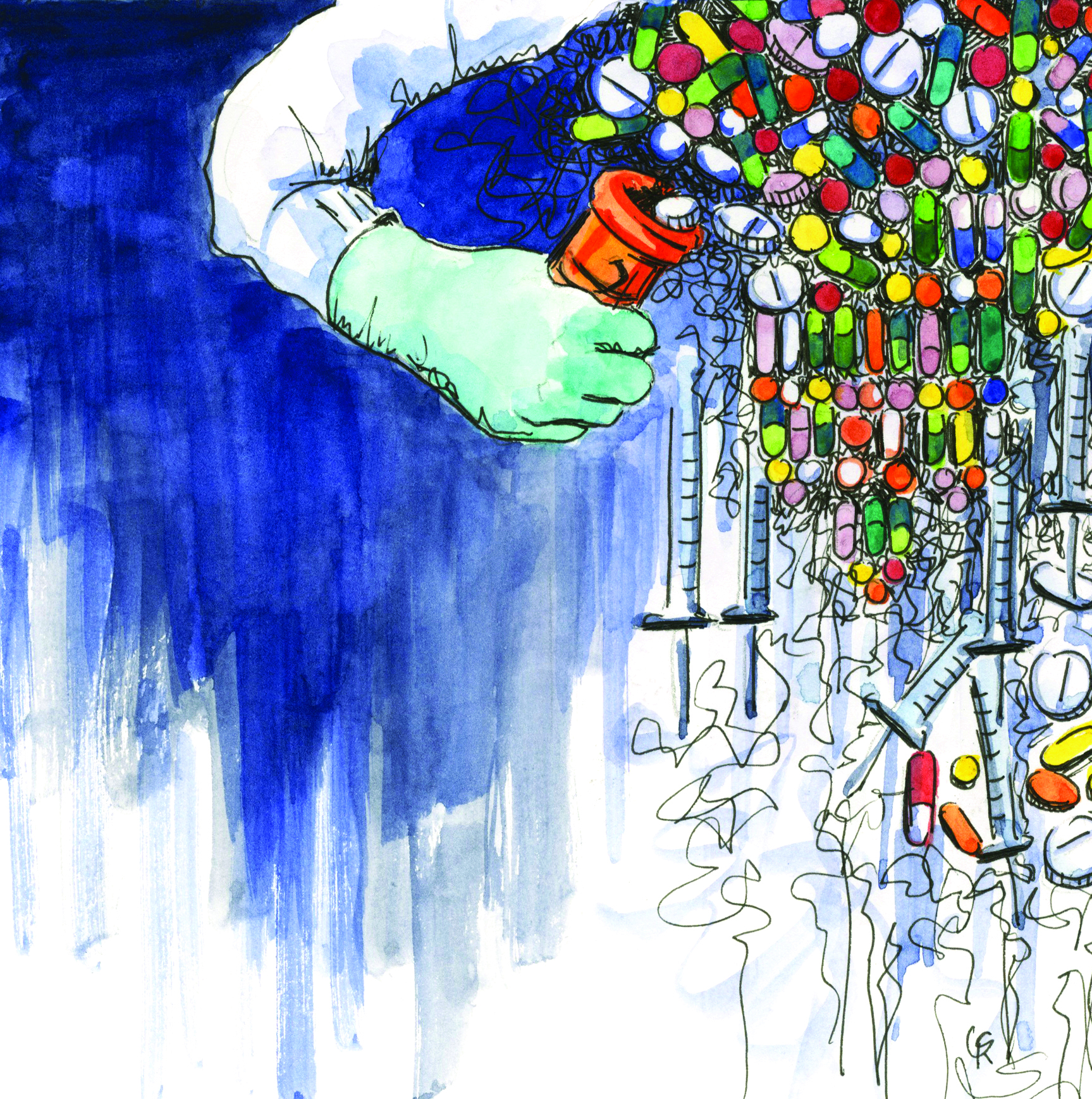
A variant of a gene involved in several neuropsychiatric disorders may be linked to opioid addiction, according to a recent study by researchers at the School of Medicine.
In a genome-wide association study of more than 5,000 people who have been exposed to opioids, researchers led by medical school professor Joel Gelernter ’79 identified a variant of the gene RGMA, or repulsive guidance molecule A, as associated with opioid dependence in European Americans. Over the years, the gene has been linked to diseases such as Alzheimer’s, Parkinson’s and multiple sclerosis. But the study, published in the journal Biological Psychiatry on Feb. 22, is the first indication that the gene plays a role in substance use disorders.
“Our work identifies a new kind of biology that may be important in differentiating individuals at different levels of genetic risk for opioid dependence,” Gelernter said. “This could provide a new biological window into our understanding of opioid dependence.”
By scanning each person’s entire genome to identify differences between those dependent and not dependent on opioids, the team found that one alteration near the RGMA gene had a strong association with the severity of opioid dependence in European Americans. In other words, people with this specific variant were more likely to show symptoms of dependence.
The scientists also found that the RGMA variant was linked to opioid dependence in African Americans, but the association was about five orders of magnitude weaker than in European Americans. These results — collected from samples throughout a period of 18 years — suggest that different populations may share the same genetic risk factors, but that there are also some population-specific factors, Gelernter noted.
The gene RGMA encodes for the protein RGMa, an axon guidance protein in the central nervous system involved in neuroplasticity — the brain’s ability to form new connections over time. Regulating cell death and nerve growth, RGMa has been found to inhibit neuronal regeneration and recovery of function in multiple sclerosis, according to Zhongshan Cheng, a postdoctoral researcher and the first author of the study.
After identifying this variant, the researchers measured gene expression in brain tissue of the human frontal cortex, discovering a regulatory relationship between the variant and RGMA expression.
The study also found that in the motor and reward systems of mice, the mouse gene Rgma — which is ancestrally related to the human RGMA gene — was more likely to be upregulated in mice that preferred morphine, an opioid commonly used in pain medication.
The investigators discovered that the RGMA gene expression was higher in a particular mouse strain that had the greatest preference for orally self-administered morphine than in three other mouse strains.
These results strongly support the involvement of RGMA in opioid addiction, Cheng said, since different responses by the gene to opioid exposure may predispose people to different levels of opioid dependence.
The team’s findings provide a framework to begin to understand how RGMA might be related to opioid dependence, Gelernter said.
“We hope that eventually, [our work] will lead to development of treatment,” he said. “We could imagine that there’s some possibility that research in RGMa and pharmaceuticals could act on or around RGMa signaling. It could potentially have a role in treating opioid dependence.”
The work builds on previous research in Gelernter’s lab that investigated gene variants in African Americans linked to increased risk of opioid addiction. In 2014, scientists discovered genes involved in potassium and calcium signaling that were associated with opioid dependence.
“We’re looking for additional samples that we can use to extend our genetic studies and to understand better how exactly these variants relate to opioid dependence risk — and how they might relate to risk for other psychiatric traits,” Gelernter said.
Cheng added that the team also hopes to further investigate the role of RGMa in opioid addiction.
In 2016, more than 42,000 people died from overdoses involving opioids, of which 40 percent were from prescription opioids, according to the Centers for Disease Control and Prevention.
Amy Xiong | amy.xiong@yale.edu








